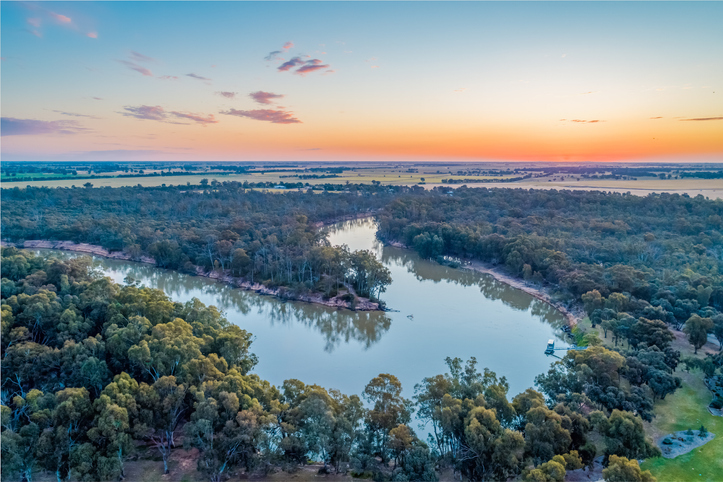Rivers in South America, southern Africa and Australia are most at risk of extreme ecological changes from global warming according to a world-first study by a specialist team of geographers and hydrologists.
The researchers from the University of Nottingham, UCL and the UK Centre for Ecology and Hydrology have uniquely combined a range of global climate models and hydrological models with an environmental flow approach. The results, published in Earth's Future, show significant variation in the risk of change to the ecology of the 321 river basins that cover around 50% of the Earth's land surface.
Aquatic ecosystems underpin numerous ecosystem services that are vital to humans, such as food production, water supply and water purification. The team's findings could help target hotspots for ecosystem conservation, through better understanding of the ecological risks from climate change-induced modifications to river flow.

The ecologies of the world's rivers are strongly controlled by the amount, variability and timing of water flowing within them. Changes in river flows impact on river depth and velocity, water chemistry and habitats, with implications for aquatic life and the ecosystem services provided by rivers to humans.
Using results from nine global hydrological models forced by five climate models, the researchers compared simulated river flows under a range of global warming scenarios with historical flows. They were able to project which basins were more likely to experience significant ecosystem change due to altered river flow.
Rivers projected to be at most risk include the Amazon and Parana in South America, the Limpopo and Orange rivers in southern Africa and Australia's Darling River.
Across the globe, the larger the temperature increase, the greater the risk of change, particularly for low flows at the highest level of warming.

Professor Simon Gosling from the University of Nottingham's School of Geography, led the climate change scenario analysis. He said: "Our research is very timely considering the COP discussions taking place in Glasgow this week. We are currently on course for 2.7°C warming compared to pre-industrial times. The Paris Agreement has a goal of 1.5°C, so the world is currently way off target. Our modelling and analysis show the risks to the ecological functioning of rivers is much larger if the 1.5°C goal is missed and we head towards 3°C. Our study's results highlight the importance of having ambitious reductions in global greenhouse gas emissions if we are to avoid ecological degradation of some of the world's largest rivers."

Professor Julian Thompson from UCL's Department of Geography said: "Climate change is expected to lead to an intensification of the hydrological cycle. Yet the climate change signal and its consequences vary throughout the world as revealed by our analysis. In some parts of the world there is large uncertainty."
"If a river's regime changes, the associated ecosystem service will change. Natural aquatic ecosystems have processes that can improve water quality – reduced river flow impacts their ability to dilute pollutants. Higher flows might be more associated with changes in sediment loads, which could put water purification under stress. The life cycles of aquatic animals, in particular many fish species, are synchronised with seasonal variations in river flow so that changes in discharge could increase pressure on fisheries, many of which are already stressed."
The team have begun to expand their global analysis to include the impacts of human activities such as dams and water diversions. This will enable an attribution of future risks of ecological change between human interventions and climate change. The research also highlights the need for mitigating action such as changes to infrastructure – for example, the repurposing of dams to recreate more natural river regimes such as using artificial flood releases to mimic natural flows and maintain downstream environments that rely on rivers for their survival.






